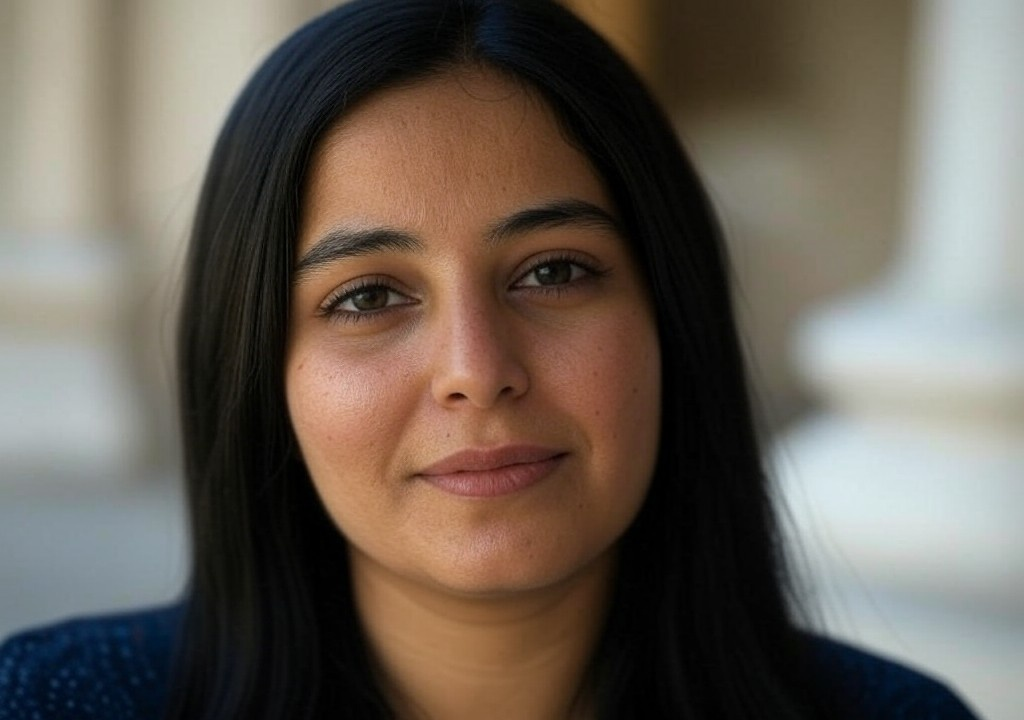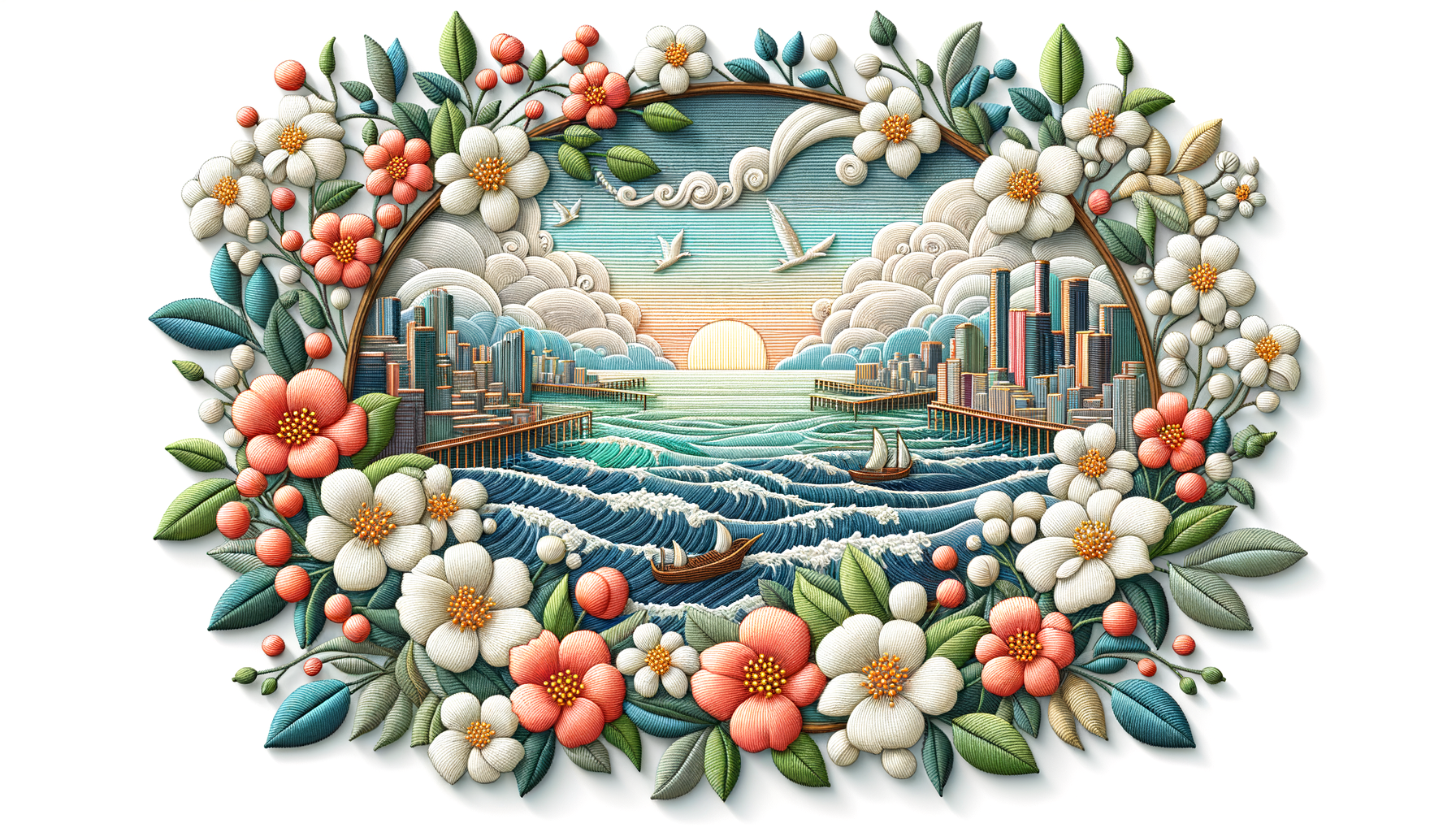Alexandria smells like jasmine and the sea. It’s the first thing I noticed after all these years when I stepped off the train last summer—this sudden rush of salt and sweetness, both grounding and nostalgic, like slipping on an old, forgotten sweater that still fits perfectly. There’s romance in this city that I didn’t fully see as a child. Back then, I thought of it as a stage for other people’s lives: the elders on balconies, arguing over the clink of tea glasses; fishermen mending their nets by the Corniche, cigarette dangling precariously from their lips. But now? Now I wonder if Alexandria was the place that taught me how to fall in love, not just with someone else, but with all the contradictions of belonging, self-discovery, and the clumsy art of connection.
Let me explain. Alexandria doesn’t just “exist.” It performs. It’s salty coastal winds paired with the chaos of honking tuk-tuks. It’s ancient cafés with cracked tiles where time slows down, contrasted with the wild, rush-hour crush of people. And it’s precisely this tension between tradition and spontaneity that shaped both my idea of what it means to love—and to live.
Love Is Sometimes a Balcony View
My family’s apartment in Alexandria was on the fifth floor of a weathered beige building with no elevator. It overlooked a narrow street where neighbors yelled greetings across laundry lines, and gossip traveled faster than the wind. Friday afternoons smelled of musky incense, fried fish, and my grandmother’s signature molokhia stew, simmering somewhere below. I remember sitting on our tiny balcony and listening to the rhythms of the street—kids chasing footballs, a street vendor selling fava beans, the distant maghrib call to prayer.
It was a place where you felt seen, truly seen. Mrs. El-Tamimi from upstairs knew what you wore to school. Uncle Mustafa from across the road tracked your report cards and offered impromptu lectures about the value of hard work while munching sunflower seeds. Privacy was a foreign concept. And while this drove my sulky teenage self to throw eye rolls like confetti, looking back, I see how much this constant connection taught me about relationships.
To love someone is to know their details—their chipped coasters, their overcooked rice, their subtle winces when you hit a nerve in conversation. Living in a city where nothing was hidden showed me that relationships thrive not on the perfectly curated moments, but on the shared flaws and the sticky, unspoken parts of your life. Forget candlelit dates; commitment is built during mornings when your hair’s a mess and you’re arguing over whose turn it is to sweep the sand off the balcony.
The City Is a Flirt—and You Should Be Too
One of my favorite things about Alexandria is how she flirts. Yes, I’m personifying her—and no, you can’t stop me. The city is all curves and edges, shining turquoise in the sunlight and hazy gold during sunset. The Mediterranean waves will tug at your ankles one minute, then retreat coyly before you get too close. Alexandria doesn’t give you everything at once; she teases, lets you chase her moods.
It’s the same lesson every lovestruck teenager with a French pop song on loop learns at some point. Mystery matters. My Parisian classmates used to roll their eyes at my utterly Alexandrian style of affection, calling me "complicated" in that exasperated French way. But hey, Alexandria taught me that curiosity—whether it’s about a person or a place—keeps desire alive.
The modern dating scene sometimes makes things too easy. Swipe right, match, instant validation. But where’s the magic in a one-line bio? Where’s the push-pull, the slow unraveling? I say embrace the intrigue. Be like Alexandria. Don’t show all your cards too quickly. Let people earn your story on the first date. Or the second. Or over years of trading embarrassing childhood memories while sharing fries at midnight.
Storms Will Come—And That’s Okay
Alexandria is at her most dramatic when the winter storms roll in. The waves crash mercilessly against the Corniche, sending icy water splattering over unsuspecting pedestrians. The electricity flickers ominously in homes. For some, it’s chaos. But for me, those storms remind me of how alive this city is. They’re unapologetic, unpredictable, and somehow extraordinary to watch.
Storms, I’ve learned, are inevitable in relationships too—blazing arguments, silent treatments, the gut-punch of unmet expectations. When I first moved to Paris, I thought love should be smooth and seamless, like the melted chocolate center of a fondant. But Alexandria taught me differently. Love can be raw. Messy. Uncontainable. That’s not failure; that’s growth.
Here’s the thing: the storms at sea never last forever, and neither do most fights. What matters isn’t the storm itself but how you weather it together when it comes. Do you cling to the shore, or do you face it head-on, knowing there’s clarity on the other side?
The Language of Bread and Olive Oil
If you want to learn about intimacy in Alexandria, you need to eat with someone. Preferably with your hands. The experience isn’t just about food—it’s about trust. Sharing a freshly baked baladi loaf with olive oil and za’atar isn’t just sustenance; it’s vulnerability. That loaf represents time, effort, a small offering to say, “Let’s slow down. Let’s share something meaningful together.”
Growing up in Alexandria, I saw countless unspoken acts of love tied to food. There’s the neighbor who sends over oranges when you’re under the weather. The grandmother who insists you take the last piece of kunafa even though it’s a known fact she’s been eyeing it all evening. It’s wordless, simple, and yet it teaches you to look beyond grand gestures.
Love—and life—isn’t composed of grand cinematic moments. It’s built in moments like these. It’s baked into the crust and folded into every olive pit. If someone shares their bread with you—metaphorically or literally—pay attention. That’s where love lives.
The Art of Parting and Coming Back
Leaving Alexandria for Paris at the age of ten felt like ripping off a Band-Aid. Suddenly, my world became chic berets, frigid metros, and the crisp perfection of pain au chocolat. And yet, I carried Alexandria everywhere—in my accent, my storytelling, and my odd preference for drinking mint tea over espresso. Over time, I realized that falling in love with a place doesn’t vanish just because you leave.
We often think of love as permanence—a house, a contract, the promise of forever. But Alexandria taught me otherwise. Love is also fluid. It means cherishing what you’ve had, carrying it in your pocket, and revisiting it when the time is right. And sometimes, that time comes years later, when you finally step onto a train and find yourself back in a city that smells like jasmine and the sea.
Alexandria shaped how I see relationships, whether romantic, platonic, or personal. She showed me that true connection means being seen in your entirety. That magic lies in curiosity and mystery. That storms are unavoidable but survivable—and food is most definitely love. So, wherever life takes me next, Alexandria will always be my North Star. She’ll always be the place that whispered: love is messy, flawed, breathtaking—and worth it.




















